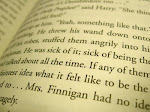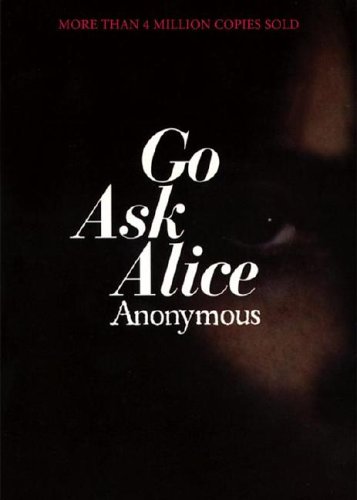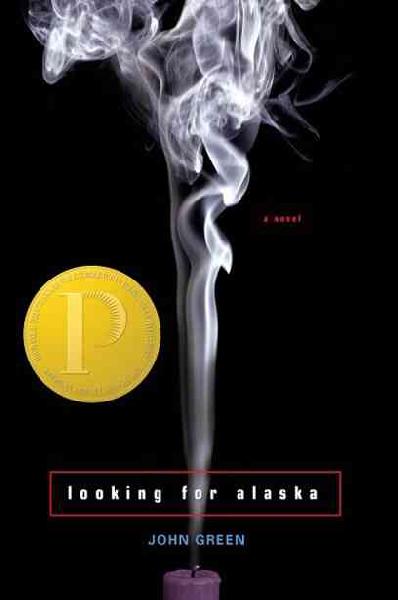
I'd wanted to wait until a bit later to even mention this series on this blog (because it is a censored book, shockingly), but recent events (like the release of New Moon, the second installment of the "saga", on DVD) have prompted me to jump forward in the schedule.
Now, I have seen both movies and read all four books, and I've ranted about this series on my personal blog as well, but I figured I might as well make this somewhat legitimate. I first picked up Twilight during my junior year of high school because a bunch of my friends had read it and I wanted to see what all the fuss was about. After two books, I kind of liked the series (or at least the character of Jacob Black). After four, I was left... underwhelmed.
Before I lash into it, however, let's break down the censoring part. In the Capistrano, Calif. Unified School district, an instructional materials specialist ordered that the books be moved from middle-school to high school libraries. (We presume this is because of "material unsuited to age group."). The specialist then ordered the books to be removed. The order was later rescinded. The series was also challenged in Brockbank Junior High School in Magna, Utah, because of concerns from a parent over "sexual content" in the final installment, Breaking Dawn.
With all of that said, let me just tell you right now: It is not worth the time. First of all, Stephenie Meyer writes like a five-year-old. Barring all of that purple prose she uses to make Bella swoon all over Edward's hard, cold marble body and perfect face, she just doesn't have the chops a truly good writer needs. Her characters are also irritating- the round-character-slash-narrator-written-like-a-flat-character-so-girls-can-imagine-they're-her Bella Swan, coupled with the brooding, stalkeresque, borderline abusive and control freak vampire Edward Cullen make for a pathetically whiny, self-involved and tiresome literary couple. Like I mentioned before, Jacob Black is the only character worth any shred of sympathy- until he undergoes a massive character assassination in Eclipse to make Edward seem more appealing. Everyone else (save for cutesy vamp sis Alice Cullen, and later in Breaking Dawn, conniving vamp sis Rosalie Hale) is pretty much white noise.
Then there is the plot- or lack thereof. Girl moves to small town, hates life, meets boy, finds out boy is vampire, falls in love with him anyway, does stupid crap to get herself in trouble, vampire boy rescues her time and time again, other boy who falls in love with girl is werewolf, wolf boy takes off shirt a lot, wolf boy and vamp boy flex muscles and threaten one another, girl and vamp boy get married after she graduates, girl has sex with vamp boy (necro), girl gets pregnant (impossible), vamp boy's vamp "sister" wants to take baby, girl has vamp baby and becomes vampire, voila, happy ending. Ya-freaking-awn. I mean, when conflict even comes close to happening in Breaking Dawn, Stephenie just shies away. And all of this when Bella can actually fight for herself now. Lame. Not to mention the fact that she breaks all of the rules she herself sets in the first three books, in the final book. Um, what ever happened to consistency?
Can I also mention that it's hopelessly anti-feminist? Bella can barely fight for herself, she can't bear to live without a man in her life, and she can't become a vampire (or have sex with Edward, for that matter) until they marry. Both based on Christian values that a woman's virginity is all that matters and on male domination. And the strong female characters- Rosalie, Victoria (the vamp huntress out to kill Bella), etc.- are all evil. There's also something fishy about Edward and Bella's relationship- he keeps her from seeing her best friend Jacob, he tracks her when she does try to go see him, and all the while he insists that it's for her own good. Since when has he become her father? But girls who are in love with the series insist that it's just "so cute." Really? And if a guy tried to do that in real life, where would he get? Honestly... like we really need more girls out there with hopelessly low self-esteem, using Bella as a role model.
Also, Meyer really did not do her homework on vampires at all. Read Dracula or Anne Rice novels- THAT is what vamps are all about. They can't go into the sunlight at all (because they die, they don't sparkle), they balk at crosses, and oh yeah, they drink human blood. There's imagination and then there's distorting and discrediting the work of authors way more talented than yourself, Steph.
Don't even get me started on the fans, either. Oh, the crazy, deluded fans who only help censorship activist groups' cause, because they can't separate real life from fiction. Fans who dump their boyfriends for Edward and Jacob and Jasper and who pine for a "real-life Edward Cullen." Check out mylifeistwilight.com sometime and you'll see what I mean. It's just ridiculous. And God forbid you cross them, because then their fangs come out. Literally. My own cousin (whom I otherwise love dearly) is a Twi-hard and self-proclaimed "vampire geek," and she swears up and down that it's genius and the fact that so many other people loved it means it's good. Um, a bunch of hormonal teens and middle-aged moms don't prove much, except that they're as shallow as Bella when it comes to their men.
This is the first (and hopefully only) book I'll tell you not to bother reading, if you haven't already. I'll probably catch some flak for such a vitriolic post, but oh, well. I tell it like it is, and I say skip it.
















